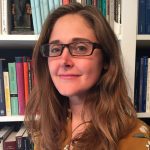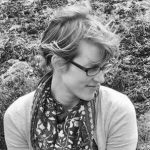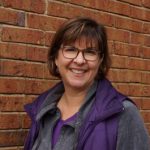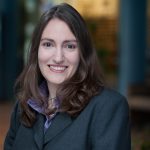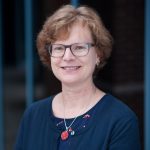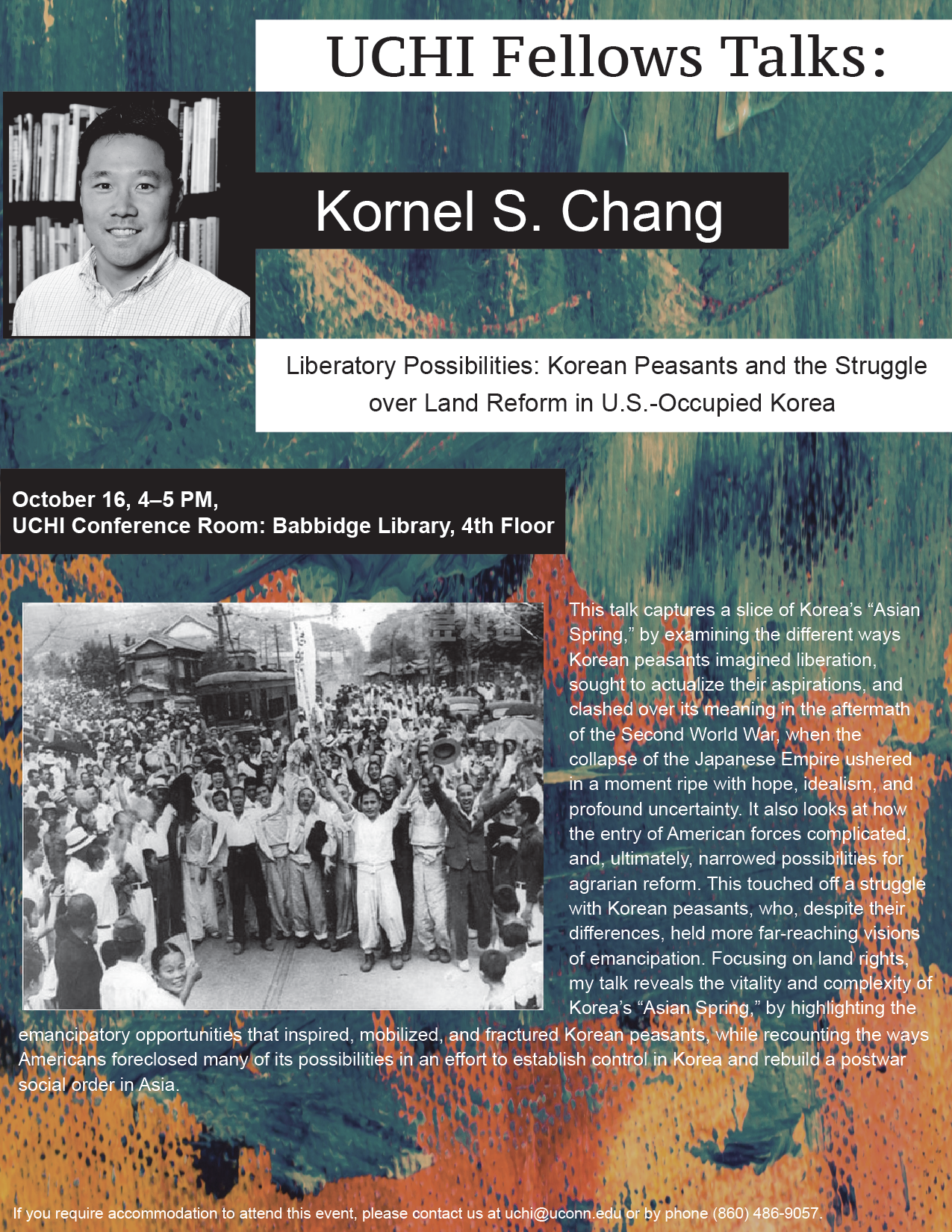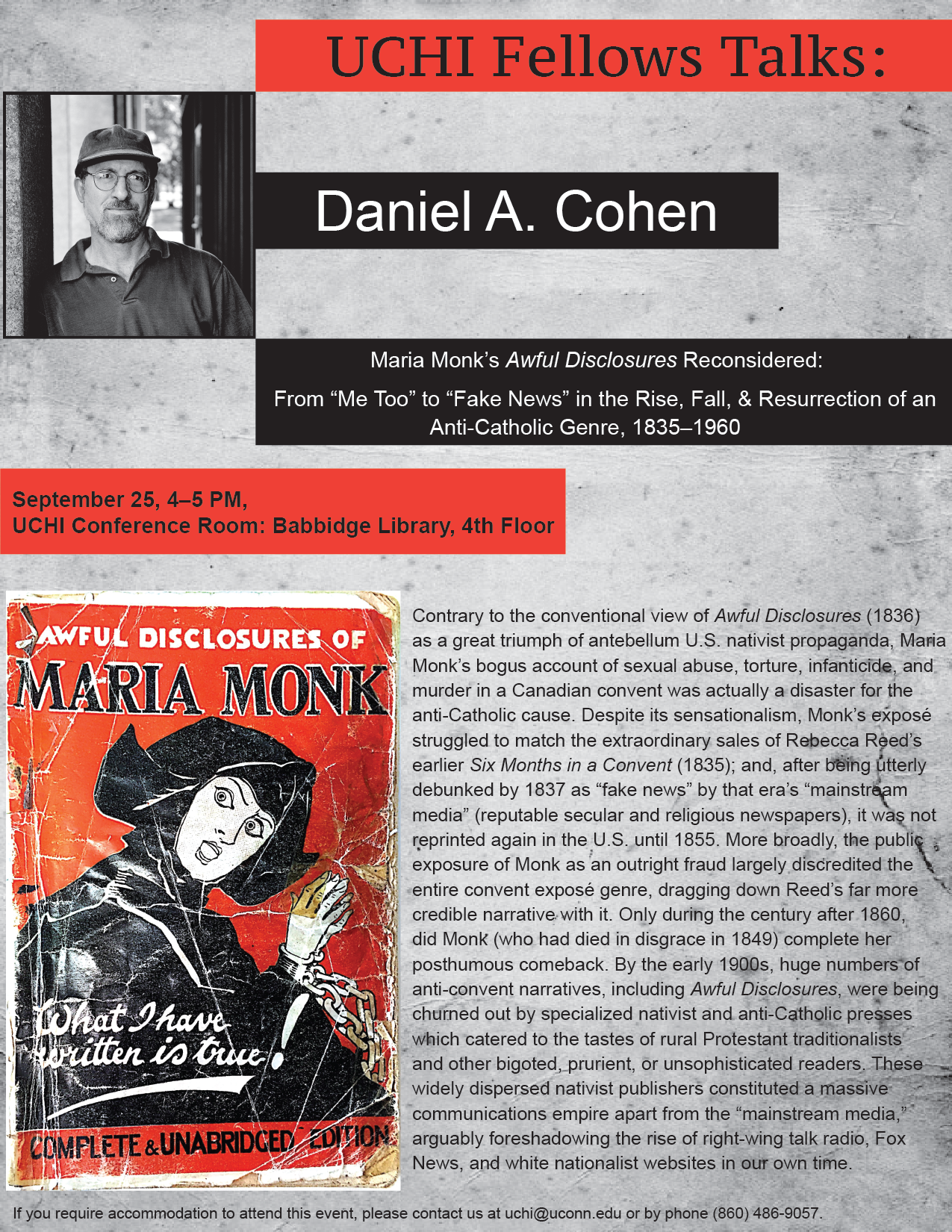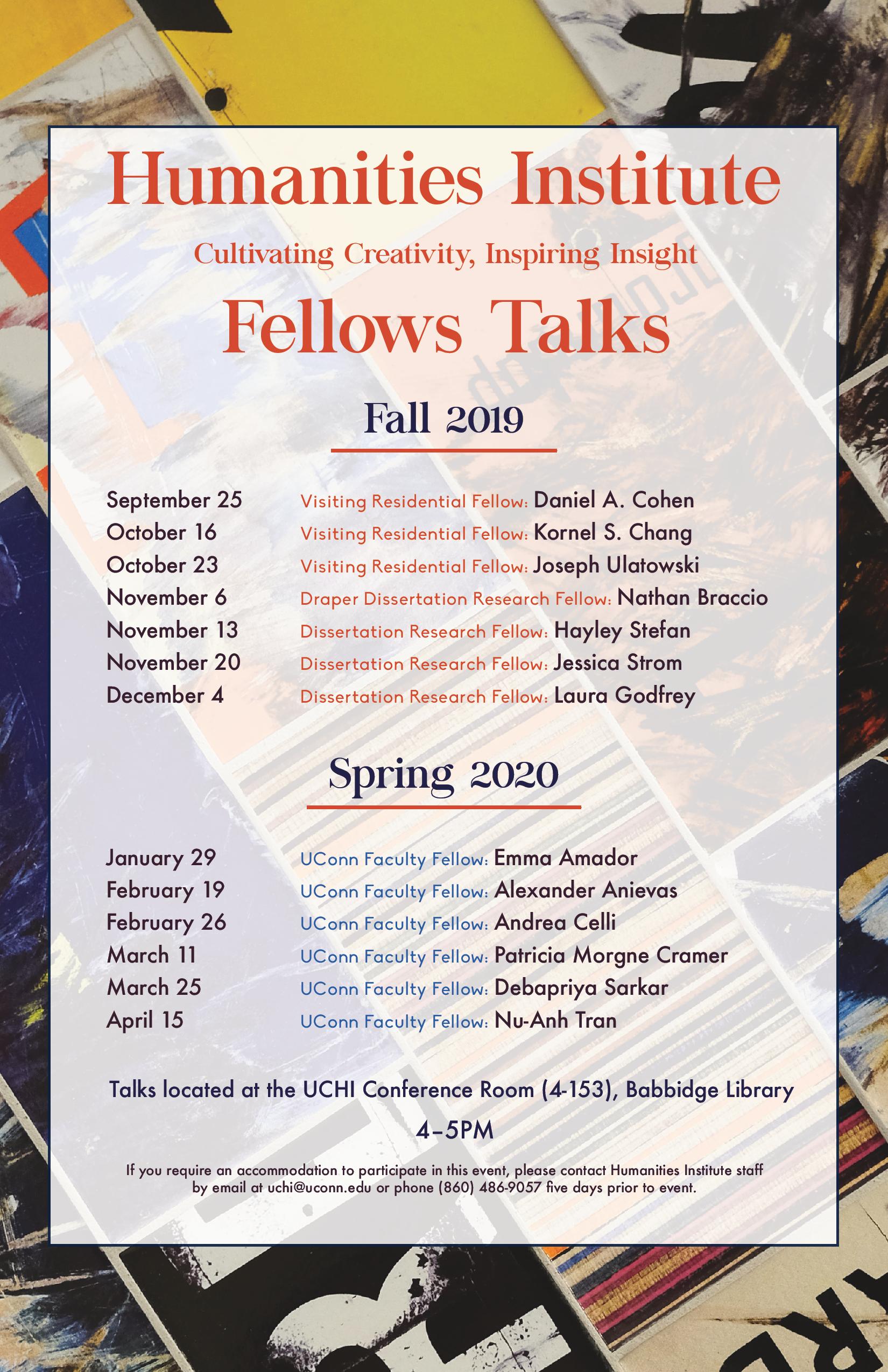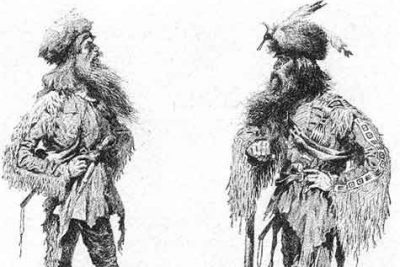The University of Connecticut Humanities Institute (UCHI) is thrilled to announce the incoming class of visiting humanities fellows: Erica Holdberg from Utah State University, David Samuels from New York University, and Amy Meyers from the Yale Center for British Art. Amy Meyers. More information about each fellow, including their biographical information, will be provided at a later date
Erica Holberg
Philosophy - Department of Languages, Philosophy, and Communication Studies, Utah State University
Project Title: The Pleasures of Anger: Insights from Aristotle and Kant on Getting Mad, Staying Mad, and Doing This With Others
David Samuels
Anthropology - Department of Music, New York University
Project Title: Early Folk World: Music, Industrial Modernity, and the Anguish of Community in the 20th Century
Amy Meyers - Future of Truth Fellow
Art History - former director of the Yale Center for British Art, Yale University
Project Title: William Bartram and the Origins of American Environmental Thought
